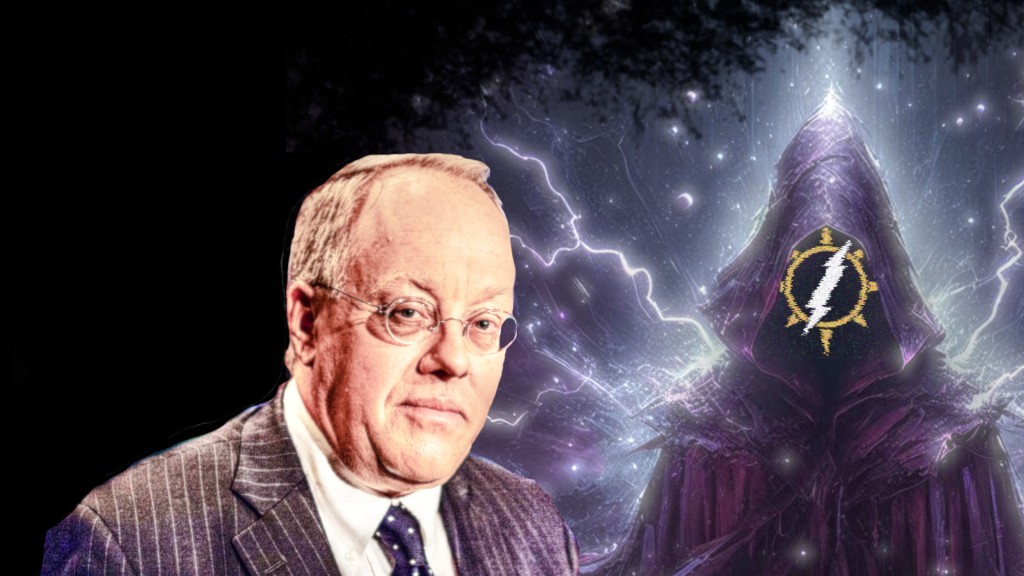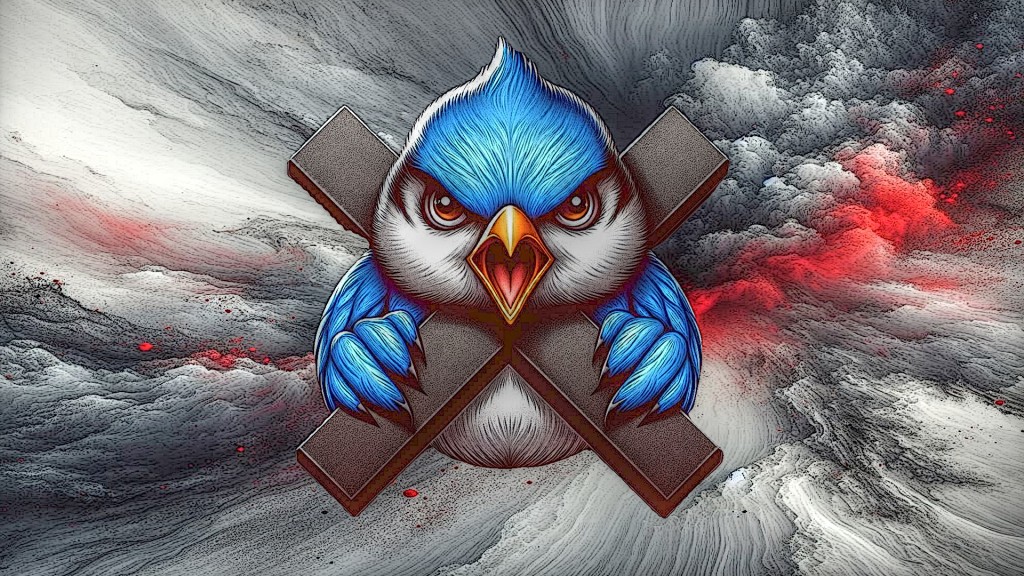Before We begin…
I was reading through Ovid’s Metamorphoses recently and something struck me about the work as a whole. The philosophical pagan ideas of the first half of the book will make one a believer in the gods, while the distorted stories that follow in the second half, which see the gods descending into all too human pettiness, lunacy, arbitrariness, and cruelty, will make one an atheist. Such is the way of culture as a whole. Stories begin with an idea of genius, then are either honored and treated as the creative works that they are, or become distorted, eventually turning into grotesque things.
In the Roman Empire, this cycle ended in a situation where the Roman people liked their resilient folk traditions, while the Roman elites were cynical and decadent. And thus a certain portion of those elites, fishing for a new ideology, adopted Christianity. And the rest is a thing of history… until the same process repeated after World War One.
Given the subject at hand, take from that what you will.
Identity in Modern Times
Identity. It’s a word with a lot of meaning, and one that many people are obsessed with. The biggest crisis of the modern world is the disillusionment with identity. Traditionally one’s identity came from being a part of a family, a settlement, and a clan/tribe. Eventually several challenges rose to these identities. Larger entities, based on abstract principles, claimed ownership of individuals and their smaller entities. These include global religions, nation-states, and empires, each of which sought to provide their own abstract identity to define their followers. When the world turned to industrialization, many people moved to cities which were places where the sort of communal attitude experienced in villages and towns simply wasn’t possible, thus bolstering the popularity of abstract identities, whether those identities came from societies and clubs, religion, politics, or other communal organizations.
Citizenship, the abstraction introduced by nation-states and empires, has become ever less of an identity, since democratic countries are now no longer unified as countrymen, but divided into artificial ideological blocks by political parties. It is now entirely possible for one to hate one’s fellow countryman with the sort of vitriol once reserved for despised enemies of the nation.
Political parties are but one of many divisive factors which pull populations apart in this environment. The primary industrial projects and factories of modern society, critical for its continued existence, are always controlled by either governments or large companies. This leaves little personal pride in work, especially when the attitude of such places seems to be that every worker is replaceable.
Religion itself, historically the other means of identity, has been going through Nietzsche’s death of god scenario. Its basic tenants have been taken up by the political factions of society which continue to “use the grammar” of religion, even as the doctrines that justified that grammar have faded away. In regards to the western world, World War One can be regarded as the death knells of western religion. Everything that has come after, whether that is Consumerism, Communism, Eastern Mysticism, Fascism, Nationalism, etc. has been a search for an alternative meaning to guide civilization.
And then there’s the individual. There are basically two types of countries in the world today. One seeks to take the individual and turn them into a fanatical supporter of national identity and the state. One might cite a China or Russia which elevate government to a cultic position. The other type, originally popularized by religious cults, seeks to break all the ties of an individual to their nation and national history, whether that is via disillusionment, propaganda, “guilt is control,” or another such mechanisms. When successful, this creates an individual bonded to an ideology or party rather than wider society. Indeed, such an individual might even consider themself against society at large. And for every such fanatic that is produced, another broken nihilist or social outcast is left in the all consuming wake of ideology.
In the process of this disillusion of identity, some things still remain. Most people still have some sort of family, many have marriages, some have relationships with their neighbours, etc. However, even these things see disillusion in the modern age, where divorce is common, families break apart at the behest of ideology, and many people just form temporary relationships for sexual gratification. And an ever increasing number of people in society don’t even bother to seek out relationships, preferring the digital world as an ever more hollow refuge.
So, what replaces identity?
For some identity is found in adherence to a counter-cultural movement. One can cite the modern alt-left and alt-right movements (usually some variant of postmodern anti-neoliberalism for leftist thought, and some variant of western traditionalism for rightist thought), those who double down on historic religions like Christianity or Islam, or those who despair of their lot and abandon their country to join themselves to another. Pseudo-identities/Scene Identities are also quite common. Historically this might have been attaching oneself to something like punk culture, goth culture, or hippy culture. Currently scene identities are more prominently tied into sexual identity (i.e. the modern gender spectrum) or pop culture subgroups, the latter of which forms the subject of this article.
The Consumer Mindset
What is the consumer mindset? It is the pursuit and consumption of pop culture as the answer to the purpose of existence. Where did this mindset they’re parodying come from? Well, there’s a famous screenshot from a marketing conference that plainly states what has happened.

Understand now? Get people obsessed with your products, turn them into fanatics, and then turn your brand into a religion. Has that happened in the modern day consumer cult? Let’s ask some questions and see.
Religion: Does Product Become a Thing of Devotion?
In the extreme cases, we find members of fandom who become obsessed with pop culture products, whether that is Disney merchandise, pop music singers, movie stars, or franchises. These sorts of people devote as much thought of energy to these brand icons as religious worshippers do. Therefore, it is clear that the thing they adore most is the brand.
Obsession: Does Life Revolve Around a Product?
How many people spend all their spare money on pop culture items that have no use? One can easily cite people who have large collections of trinkets to display their loyalty to the brand, some of which span multiple rooms. Sometimes these people are the idle rich, but more often than not they are simply obsessed middle class consumers who even take out loans to get more product.
Does someone have a room in their house literally devoted to a brand? Does one wear products to intentionally advertise their affinity to a brand? Does one take pride in artificially overpriced goods simply to “show off?”, as though that makes them better than others? (i.e. the Supreme phenomenon) Are they willing to cast aside morality to get more products? (for example, the sugar daddy phenomenon where many young women go out with men over the age of fifty because they buy them expensive clothing, etc.)
Heresy: Attacking a Product
Does a fan have such a devoted psychological attachment to a brand or product that they will fanatically spend their own time defending it against the attack of others? Will a fan refuse to acknowledge any flaws in a product, instead treating it as a sanctified thing?
Family: Familial Identity
Does the person unironically believe in the corporate propaganda that customers are the “family” of a corporation? Do they immediately feel an affinity with others simply based on liking the same corporate product? If their social network revolves around a fan site, does that come to serve as a pseudo family?
Experience: Reality Blurring
Does a person literally engage in acting like a character in a franchise? Does a person have an obsession with a character to the point of totemizing or fetishizing them? Does the person obsess about unreal relationships by engaging in shipping and fan fiction, which then become even more real to them than the product itself? Does fantasy become something more important than reality?
Consumer Identity
I’ve personally seen all of the above behaviours occur in pop culture fandoms, and this is because brand identity has become a replacement for religion. Think about it, becoming a member of consumer fandom is simpler than a religion or political ideology. Your stories are already provided to you, in a generalist format no less, since the franchise is aimed at a popular audience. Following the brand is easy. All one must do to be faithful is communicate loyalty by buying the brand and making positive comments about it. Then one can join with a community of friends within the fandom and spend time talking about the wonders of the brand.
While such obsessions existed before the internet, they were mostly confined to music groups and actors, both of which appeared in venues where large groups of fans could easily congregate together. With the internet and social media that dynamic changed. Now fans could congregate together on fan sites, engaging in a constant discussion with one another and moderating all dissenting opinions. This, one might recognize, is the definition of an echo-chamber. Rewards are given for holding positions approved of by the group, while punishments, such as bans, ostrasization, and exile, are given for holding contrary positions. Psychological approval in the form of dopamine hits are rewarded for getting attention and likes. Rage can be activated against any intruder that dares show up in the meeting place. Shame and embarrassment is felt upon chastisement. Glee and gloating pride are expressed when another is humbled. Soon anything external becomes secondary to this pseudo-family, including real world family and relationships.
An argument can be made that most modern day replacements for identity have been largely subsumed into these consumer ideologies, often squirrelled away on the internet within their own echo-chambers. Let me explain.
We’ve determined that national identity is no longer a targeted consumer group or a strong social category. This leaves modern pseudo-identities as consumer segments to be exploited and directed. Thus, one sees media that caters to right, left, alt-right, alt-left, etc. Why does anyone in one of those groups hold an ideological position? Why do they use certain types of language? Because there is a consensus that such is what you are supposed to do. And what are the primary mechanisms for exploiting these pseudo-identities? “Grifting” and “larping.”
“Larping,” or live action roleplay, originally referred to what games that use acting such as Dungeons and Dragons. Now it is commonly used to refer to those who intentionally put on an act as part of an online or real life persona (persona coming from the latin word for mask). You see this all over the internet with people displaying fake enthusiasm or rage, photos with over-expressive emotions, photo and video filters to create a false impression of oneself, and numerous other tricks.
Grifting refers to the particularly scummy tactic of artificially or dishonestly holding a position in order to gain financial rewards or approval. This is where the internet culture of outrage (i.e. getting artificially worked up about something for the purpose of entertainment), and the culture of conformity for praise come from. Depending on the extent of the grift, these are either fake emotions to manipulate the audience, or they are real emotions because the person in question is addicted to a cycle of rage and ecstasy.
And while one is acting out an ideology and begging for social media approval, what’s the best way of showing affiliation? Why, by buying merchandise with logos of your preferred ideology.
Do you want a t-shirt with Che Guevara’s face on it?
Do you want a cross sticker for your gun?
Do you want a rainbow colored stormtrooper funko pop?
Do you want a black lives matter banner for your video game icon?
Want to buy a 50$ anarchist skin for your video game character?
Do you want to plaster your car bumper in political bumper stickers?
Do you think purchasing a product replaces acting in the real world?
The end result is a push against identifying yourself as a complex individual. Instead, you are a part of many different consumer segments of society, identified by a lengthy group of sub-groups. Simply check the boxes.
And that’s the scary truth. It isn’t just fandoms that are consumer groups, but identity itself.
That is consumer religion, the ultimate conclusion of Anti-Art.





